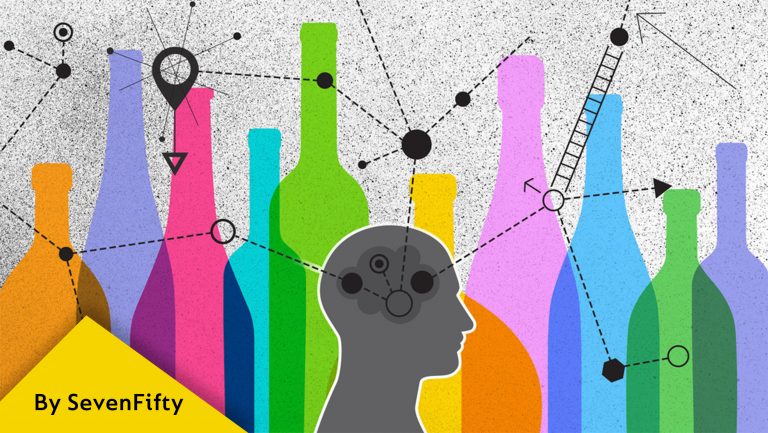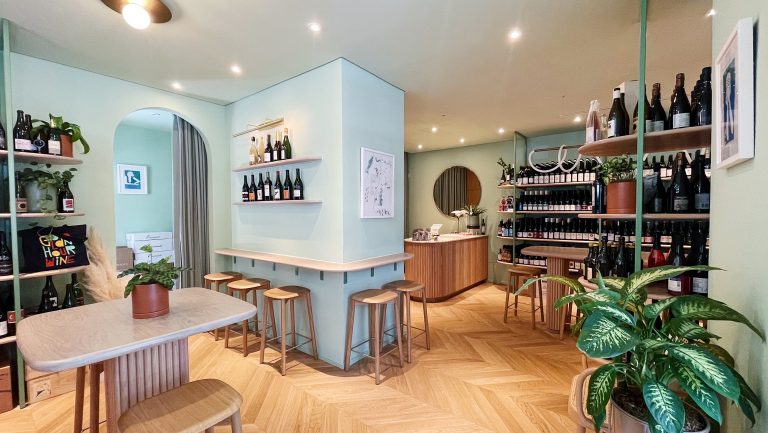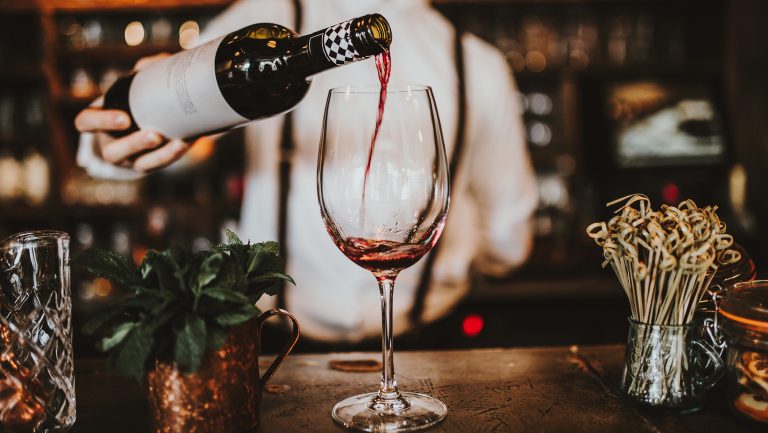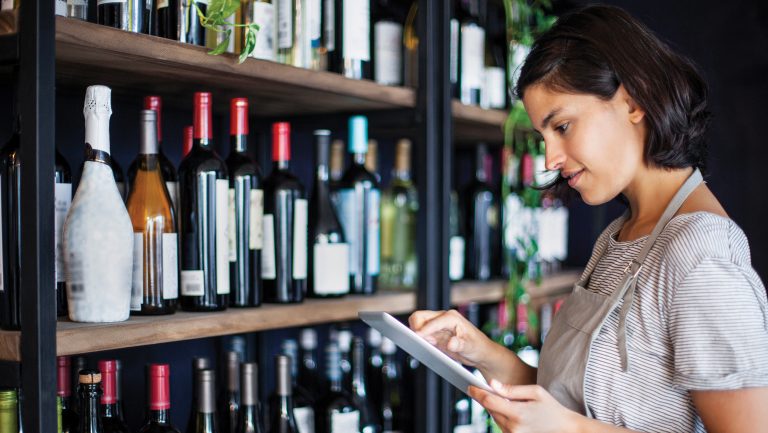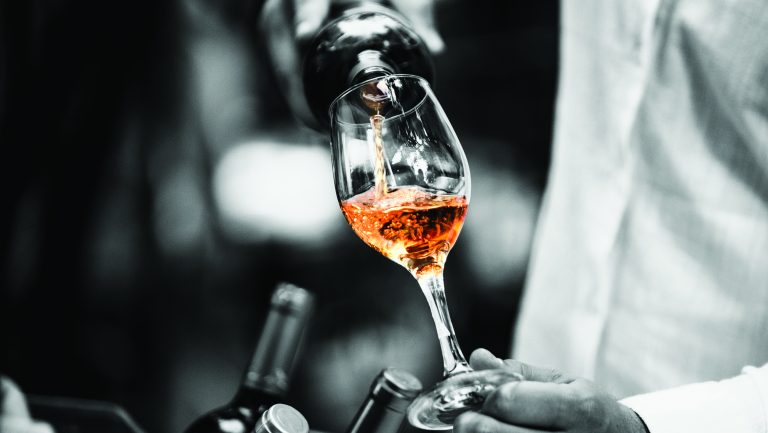This article was produced in collaboration with SevenFifty.
This is the first article in SevenFifty’s three-part series on Best Practices of Highly Effective Sales Reps. Be sure to also read How Top Sales Reps Stay Organized and Productive and How Beverage Sales Reps Stay Motivated.
Representing hundreds (or thousands) of products at a time, distributor sales reps must keep a daunting amount of information top of mind—from regional designations to producer details. So how do they keep it all straight?
SevenFifty asked top sales reps from around the country to share their secrets for acquiring advanced product knowledge and effectively communicating it. Their strategies and tactics include pursuing ongoing education, tasting products regularly, using software tools, and developing storytelling skills. From tasting on the train commute to personalizing sales materials, these are their top tips.

Don’t miss the latest drinks industry news and insights. Sign up for our award-winning newsletters and get insider intel, resources, and trends delivered to your inbox every week.
Build Your Knowledge Base
One of the first things entry-level sales reps grapple with is the degree of education they need to effectively represent their wine, beer, and spirits products. While some have excelled on the self-taught route, others pursue certifications from educational bodies such as the Wine & Spirits Education Trust, the Court of Master Sommeliers, the Society of Wine Educators, and the Cicerone Certification Program, among others.
For Ashley Hausman—who represents the portfolios of both Old World Wine Co. and Craft Wines Colorado in Denver—the Master of Wine (MW) credential trained in her an analytical mind-set that benefits her daily. “When you start paying attention more to how wine is made and why [certain] decisions are made,” she says, “which is definitely something that getting my MW taught my brain to do, you start to connect the dots.”
Hausman notes that every chance she gets, she meets and talks with winemakers, peppering them with any questions that come to mind. Winemakers, in turn, are more than happy to oblige her curiosity by providing extensive details about viticultural and winemaking decisions. For Hausman, this builds a frame of reference that translates technical data into context she can use to sell the wines. The stories that emerge, she says, are more than “a bunch of numbers and stats on a piece of paper.”
Like Hausman, Steven Van Haren—a veteran sales representative for Skurnik Wines in New York City—advises other sales reps to embrace every opportunity they can get to meet winemakers. “The most important aspect of education for me has been developing personal connections with our winemakers,” he says, adding that the most daunting part of wine education—retaining all the information—becomes easier when you have a framework to build on.
To increase his knowledge, Van Haren is a voracious consumer of content. He frequently listens to podcasts, watches relevant wine videos, and reads the latest books on the subject to stay on top of trends. The same is true of Susan Maschal, a seasoned sales consultant for Winebow who is based in Atlanta. A prodigious reader by nature, Maschal frequently flips through wine magazines and reads wine websites such as SevenFifty Daily. For her, the articles in these publications offer educational insights that she often shares with her buyer-clients. The articles, she notes, provide a catalyst for conversations—and sales.
But Maschal says that making herself available for any and all travel opportunities has proven the most valuable aspect of her continuing education. “Connecting to a place is key,” she says. “Once you’ve been there, it sticks with you in such a way that when you talk about the wines, it comes from the heart.”
Make Time to Taste
Ask any sales reps how they stay sharp on their wines, and the answer is invariably tasting. Van Haren used to commute from New York City to Skurnik’s old headquarters in Syosset via the Long Island Railroad, a daily two-hour ride that he might have chalked up as a waste of time. Van Haren, though, and his commuting colleagues made it a daily opportunity to improve their palates.
“You can drink [alcohol] on the Long Island Railroad,” he says. “So we had a tasting group five days a week where we would blind-taste each other on wine.” The knowledge gained on the commute not only accelerated his understanding of his portfolio’s offerings but put the products in context with those of competing portfolios, which were often included in the group’s lineups.
Susan Maschal says Friday is her day to fill in any gaps in what she knows about Winebow’s portfolio. “On Fridays,” she says, “if we don’t have any sales meetings, I’ll just jump into our portfolio and find a producer I’ve never shown before or don’t know much about. I’ll taste their wines and do research, and it usually connects with an account I’m working with.”
Additionally, Hausman urges newcomers to the industry to be “on the ready” for trade events in their area, even if the lineup of products isn’t exactly in their niche or comfort zone. When it comes to gaining advanced product knowledge, she adds, “there aren’t any shortcuts.”
Use Software to Streamline Your Work
While shortcuts may not exist in education, they are a key feature of the online marketplace and communications platform SevenFifty, which is used by more than 70,000 buyers and 30,000 sales reps across the U.S. “Before SevenFifty,” says Maschal, “everything was much more time consuming. Everything took twice as long.”
Like many sales reps, Maschal uses the platform to connect with buyers, create sample sheets for appointments, generate sales materials, and capture client preferences for future reference. “SevenFifty has been key in my sales life,” she says, in relating how her career changed when the platform went live in 2012. “It is so easy to use and so efficient.”
The portfolios of more than 1,000 distributors, including that of Maschal’s employer, Winebow, are part of the SevenFifty marketplace, making it easy for her to look up product details and to format personalized sales materials for her day’s appointments. By eliminating time wasted on manual entry, the platform has freed up reps like Maschal to do what they do best: service their clients and sell more products.
For Van Haren, the platform has become an essential part of his workflow. “I use SevenFifty to collect notes about the wines I am showing,” he says. “When new wines come onto the market, I taste them, I make notes about them in SevenFifty, and I gather technical data about them.”
Van Haren appreciates that SevenFifty allows him to personalize his sales materials. He adds his notes, such as viticultural details or winemaking methods, to sample sheets that can be saved for future use. He then prints the sample sheets—exported straight from SevenFifty—as leave-behind materials to reflect details he believes his clients will find compelling and to convey his personal passion for the products.
Hausman praises the way SevenFifty allows her to make professional-looking sales sheets, noting that when she started out—in the pre-SevenFifty days—her materials had to be cobbled together from all over the Internet and often looked haphazard, a jumble of fonts and formatting. Now the sample sheets and SevenFifty price books Hausman shares are not only streamlined and polished but customized with her company’s branding to create a consistent experience for buyers.
In her consulting role as a wine educator, Hausman has found the platform to be handy as well. “I do a lot of consumer wine events around town on a variety of topics, and many of [the products] I don’t represent,” she says. “I can go onto SevenFifty and reach out to those reps and companies to say, ‘Can you line me up with this or that?’ And it really helps me a lot, to see what else is out there in the market.”
Develop Storytelling Skills
Whether a rep is describing a remote Sonoma Coast vineyard or recounting the tale of a twelfth-generation winemaker who saved his family business, the ability to weave a narrative around a product is essential. Communicating a compelling story is a top requirement for succeeding as a sales rep, according to interviewees. As Maschal explains it, authenticity builds trust, and there is no better way to show authenticity than by telling clients the real, unvarnished story of the product. When she does her research, Maschal looks for the aspect of a product’s story that personally resonates the most with her. “And so when I’m meeting with my clients,” she says, “I’m telling them the story I’m most passionate about.”
Hausman says she felt lucky to find herself repping wines that she already had a passion for, saying that “once that happened, it seemed like ‘Okay, I don’t have to sell, so to speak—I can just tell stories.’” And stories, she believes, are central to motivating today’s buyers. “The world that we live in now—we want to know the why. We want transparency. And so that story gives meaning to the wine.”
Hausman adds that sales reps don’t have to concern themselves with telling clients an estate’s entire history or detailing the exact science of a product’s creation. “This doesn’t need to be Tolstoy-length stories,” she says. “Just a compelling nugget to share with a buyer that they too can pass on to their customers.”
Van Haren agrees that stories build credibility. “Making wine personal for yourself will make you a more effective salesperson,” he says, “because your buyer will realize that you have a personal stake that is not just financial but emotional and cultural.”

Dispatch
Sign up for our award-winning newsletter
Don’t miss the latest drinks industry news and insights—delivered to your inbox every week.
SevenFifty brings innovative technology and data insights to the beverage alcohol industry with next-generation solutions that power the three-tier supply chain. The company’s people-first approach to technology enables producers, distributors, importers, retailers, and restaurants with the tools they need to connect with each other and do business in a modern world.

